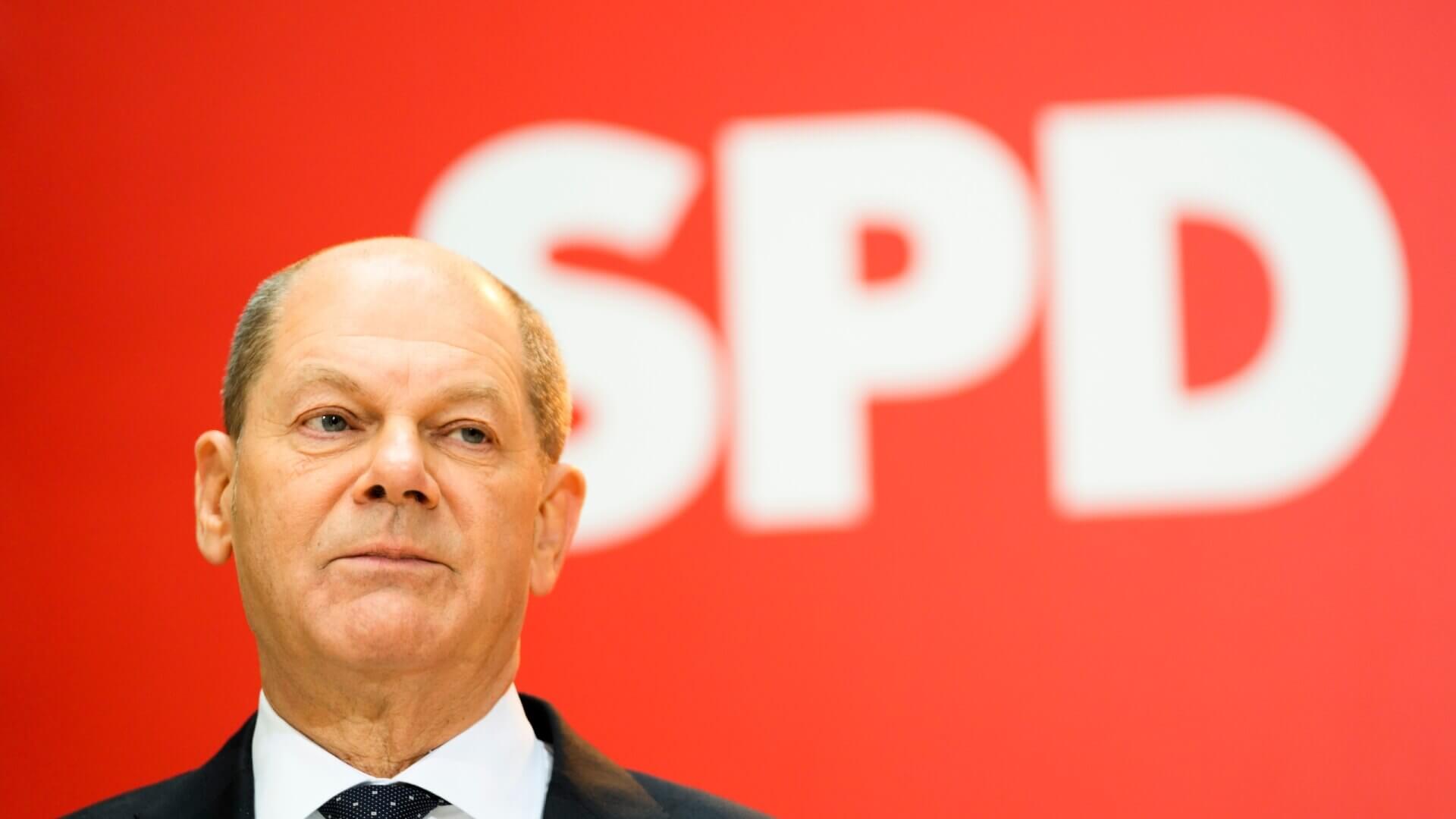At a press conference on Tuesday, incoming German Chancellor Olaf Scholz vowed to promote Europe’s interests and urged Russia to respect Ukraine’s territorial integrity and de-escalate tensions with the former Soviet nation. However, he shied away from discussing China amid a growing rift between the West and the Asian power.
Talking about Russia’s military build-up along Ukrainian borders, Scholz said: “It’s very important that no one pores over history books to redraw borders. Of course, we in Germany, just like everyone else in Europe and the United States, are very concerned about the troop movements that we are seeing on the Ukrainian border. Therefore, it must be very clear that this would be an unacceptable situation if there were a threat to Ukraine.”
In this regard, the Nord Stream 2 underground gas pipeline has been a point of contention between Russia, Germany, and Ukraine. Kyiv believes the pipeline will weaken the barriers preventing Moscow from invading Ukraine, as Russia currently relies on Ukraine to transit gas to the European Union. To this end, Scholz said he is bound to outgoing German Chancellor Angela Merkel’s commitments on the near-complete pipeline, including Germany’s intent to sanction Russia if it uses energy as a weapon against Ukraine.
Scholz noted: “We have worked hard to ensure that it is clear that Ukraine remains a transit country for gas, and we will continue to do so. And therefore, all the understandings that we have found in this regard continue to apply.”
Furthermore, Scholz highlighted his government’s pro-European Union (EU) stance and prioritised strengthening the EU on the global stage. He announced that for his first foreign trip as the Chancellor, he would honour a German tradition by visiting Paris and then meeting with the heads of European states in Brussels.
When questioned about people’s reaction to him taking reins from Merkel, Germany’s longest-serving leader, Scholz talked about his work as a finance minister in the country’s outgoing cabinet. He remarked, “Most people know me well, and with that, also the future government. We acted when Europe had to stand together to fight the pandemic. There has been a solidarity response to this crisis, also with the European Recovery Fund, and I think that is enough sign to understand what we will do in the future.”
While there are some expected changes under the new government, Scholz adopted Merkel’s gentle and non-confrontational approach concerning China and refused to discuss whether Germany would follow in the United States’ footsteps and boycott the Beijing Winter Olympics. Instead, he said Germany would extensively discuss the international situation and then decide. Compared to Scholz, incoming Finance Minister Christian Lindner and Economic and Climate Minister Robert Habeck were more critical of China, perhaps indicating the varying approaches within the coalition government, given that Scholz (Social Democratic Party), Lindner (Free Democrats), and Habeck (The Greens) all belong to different parties.
Meanwhile, European Commission President Ursula von der Leyen warned Russia, saying, “Any further aggressions from Russia against Ukraine would lead to the EU scaling-up and expanding existing sanctions against Moscow.” “We are ready to take additional restrictive measures in coordination with our partners,” she declared.
Scholz and his Cabinet are expected to take office on Wednesday after the Green Party and the Free Democratic Party agreed to enter into a coalition with the Social Democratic Party.
Incoming German Chancellor Scholz Warns Russia Over Ukraine, Avoids Discussing China
Incoming German Chancellor Olaf Scholz urged Russia to respect Ukraine’s territorial integrity and warned against any aggressions. He also shied away from discussing China and adopted a soft stance.
December 8, 2021

Germany’s Incoming Chancellor Olaf Scholz IMAGE SOURCE: NEWSNATION NOW
